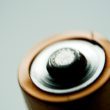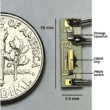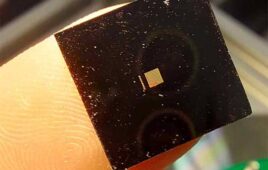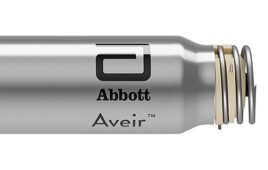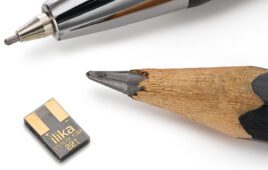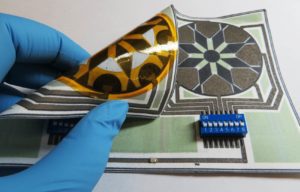
[Image from Binghamton University]
Binghamton University electrical and computer science assistant professor Seokheun Choi has spent the last five years developing micro-power sources that can be used in resource-limited regions for diagnostic biosensors. Choi has previously developed other paper-based bacteria-powered sensors.
“On-demand micro-power generation is required especially for point-of-care diagnostic applications in developing countries,” said Choi in a press release. “Typically, those applications require only several tens of microwatt-level power for several minutes, but commercial batteries or other energy harvesting technologies are too expensive and over-qualified. Also, they pose environmental pollution issues.”
Choi and a team of researchers built microbial fuel cells using inactive, freeze-dried exoelectrogenic cells that are able to create power within minutes of being exposed to spit. In turn, the fuel cells were able to create a paper-based and bacteria-powered battery.
The battery created power using one drop of saliva and was able to give power that could be used in disposable, paper-based point of care diagnostics.
“The proposed battery has competitive advantages over other conventional power solutions because the biological fluid for on-demand battery activation is readily available even in the most resource-constrained settings, and the freeze-drying technology enables long-term storage of cells without degradation or denaturation,” the researchers said in their paper.
Choi and the researchers hope to improve the battery to make it usable in more applications.
“Now, our power density is about a few microwatts per centimeter square. Although 16 microbial fuel cells connected in a series on a single sheet of paper generated desired values of electrical current and voltage to power a light-emitting diode (LED), further power improvement is required for other electronic applications demanding hundreds of milliwatts of energy,” Choi said.
The research was published in the journal Advanced Materials Technology.
(See the best minds in medtech live at DeviceTalks Boston on Oct. 2.)

